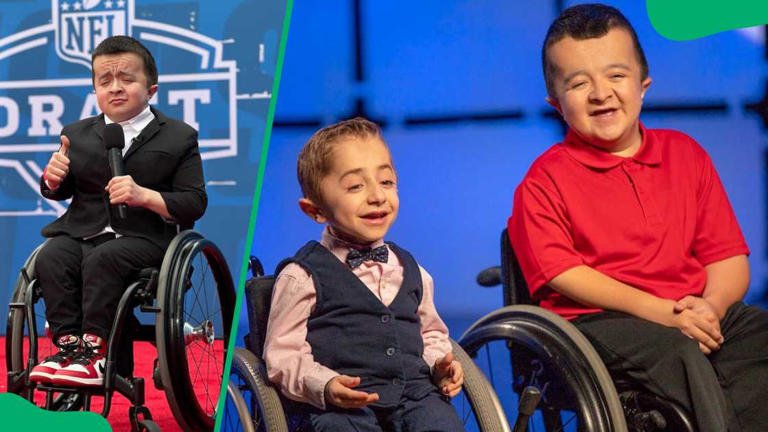Alec and Kaleb are widely recognized for their appearances in heartfelt commercials for Shriners Hospitals for Children. Their charismatic presence and emotional stories have helped raise awareness and support for children facing medical challenges. But a question that frequently arises is: Do Alec and Kaleb get paid for commercials? In this article, we dive into their profiles, explore their compensation, and reveal the true purpose behind their roles.
Profile Biographie Table
| Detail | Alec Cabacungan | Kaleb-Wolf De Melo Torres |
| Full Name | Alec Cabacungan | Kaleb-Wolf De Melo Torres |
| Known For | Shriners Hospitals Spokesperson | Shriners Hospitals Patient Ambassador |
| Birth Year | 2002 | 2009 |
| Birthplace | Chicago, Illinois, USA | Canada |
| Medical Condition | Osteogenesis Imperfecta | Brittle Bone Disease |
| First Commercial Year | 2014 | 2018 |
| Role | Advocate & Fundraiser | Advocate & Fundraiser |
| Organization | Shriners Hospitals for Children | Shriners Hospitals for Children |
Who Are Alec and Kaleb?
Alec Cabacungan and Kaleb-Wolf De Melo Torres are patients and ambassadors for Shriners Hospitals for Children. Alec, who has become the more senior figure, has been appearing in Shriners commercials since he was 12 years old. Kaleb, the younger face of the campaign, joined several years later but quickly became a beloved figure. Both of them suffer from osteogenesis imperfecta, a genetic disorder that causes fragile bones.
Purpose of the Shriners Commercials
The primary goal of Shriners’ commercials is not profit, but awareness and fundraising. The commercials showcase real patients who’ve benefitted from the hospital’s services. Alec and Kaleb help demonstrate the success stories that donor contributions can enable. Their appearances are meant to encourage viewers to support the cause.
Do Alec and Kaleb Get Paid for Commercials?
Yes, Alec and Kaleb likely receive compensation for their work in commercials—but not in the way celebrities or traditional actors do. According to multiple public statements from Shriners Hospitals, the organization operates as a nonprofit, and funds are used responsibly. While they do not publish exact figures, both boys may receive small stipends or expense reimbursements, but their roles are primarily volunteer-based.
They are not “actors” in the traditional sense. Their roles are more aligned with being ambassadors, representing real patients of the hospital. In many cases, nonprofit ambassadors are compensated modestly—mainly for travel, appearance fees, and time.
Why Compensation Is a Complex Subject
Determining how much Alec and Kaleb get paid is difficult because:
- Nonprofit Transparency – While Shriners is transparent with its financials, it doesn’t list individual compensations for patient ambassadors.
- Child Privacy – Given that both individuals are minors or started their roles as minors, details are likely protected under privacy laws.
- Role Classification – Alec and Kaleb are patients first, and their ambassador work is part of a mission-driven campaign, not a commercial gig.
Are Alec and Kaleb Employees of Shriners?
No, Alec and Kaleb are not official employees. Instead, they are volunteer ambassadors. Their involvement comes from their own desire—and their families’—to give back to an organization that changed their lives. While they appear in videos and events, they do so in a representative, advocacy capacity.
Impact of Their Participation
Their roles have had a tremendous impact:
- Fundraising Growth: Donations increased notably after Alec’s campaigns.
- Public Engagement: Viewers connected emotionally with their stories.
- Representation: They show children with disabilities can lead inspiring lives.
Alec has even become a public speaker and sports analyst, gaining attention beyond Shriners.
Do They Benefit in Other Ways?
Absolutely. While monetary compensation may be minimal, Alec and Kaleb benefit in these ways:
- Media Exposure: Opportunities in public speaking, social media, and advocacy.
- Educational Support: Many nonprofits offer scholarships to ambassadors.
- Professional Development: Alec has leveraged his platform into a college education and career prospects in sports journalism.
How Do Their Families Feel?
Both families have expressed gratitude to Shriners. They’ve supported Alec and Kaleb’s roles in the commercials because they believe in the mission. Public statements from Alec’s family show their pride in his growth and contribution to advocacy.
Are There Any Controversies?
There has been no verified controversy about Alec or Kaleb’s participation in the commercials. On the contrary, they are praised for their courage and effectiveness. Some online discussions speculate about compensation, but these are mostly curiosity-driven and not based on misconduct.
Will Alec and Kaleb Continue in Commercials?
As of now, both continue to appear in Shriners commercials, though Alec, being older, is gradually expanding his role to public speaking and media. Kaleb remains active in recent ads and events.
Conclusion
So, do Alec and Kaleb get paid for commercials? While they may receive limited compensation, their main motivation is advocacy. Their stories have touched millions and significantly boosted Shriners Hospitals’ public awareness and donations. Rather than acting for fame or financial gain, Alec and Kaleb serve as living examples of hope, resilience, and the positive power of nonprofit healthcare.
Read more: Eva Marcille Twin Sister – The Truth Behind the Internet Rumors
FAQs
A: No, they are not salaried employees. They may receive stipends or expense coverage as ambassadors.
A: No, they are real patients of Shriners Hospitals for Children, not actors hired for scripted roles.
A: Both received care from Shriners and later volunteered to share their stories in national campaigns.
A: Donations primarily go toward hospital care and operations. Any ambassador compensation is minimal and mission-aligned.
A: Yes, as of 2025, both Alec and Kaleb are still active in Shriners’ awareness campaigns.
